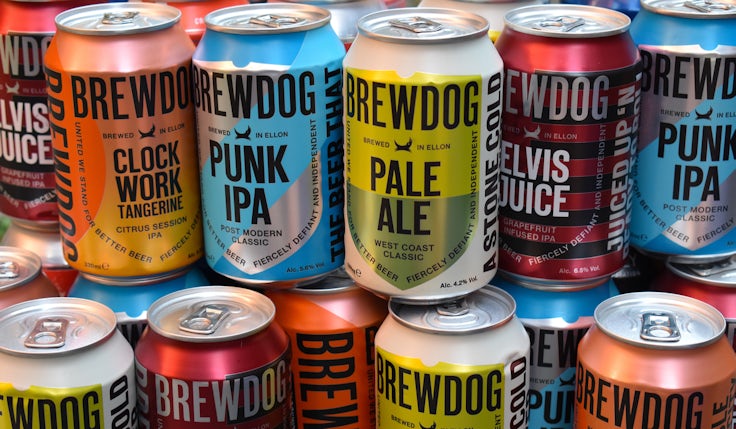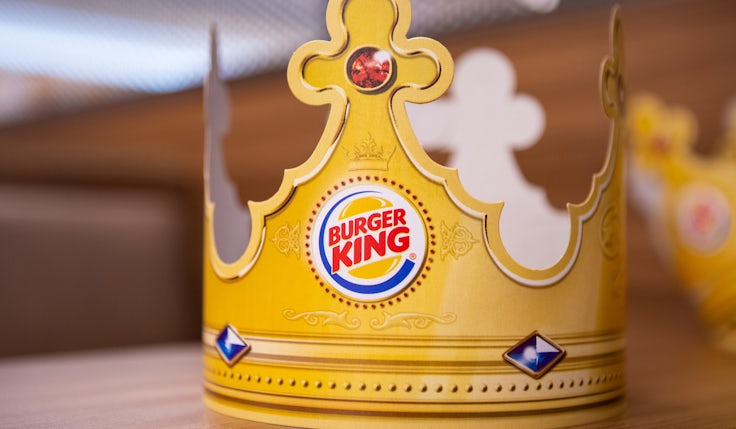P&O Ferries’ brand health nosedives after mass firings scandal
The PR disaster is taking its toll on perceptions of the ferry company’s brand, while unrelated business P&O Cruises is also suffering the brunt of public anger.

The health of the P&O Ferries brand has plummeted since news broke of the the company’s abrupt sacking of 800 staff last week.
According to YouGov’s BrandIndex tool, P&O Ferries’ overall index score – a measure of total brand health using an average of its impression, value, quality, reputation, satisfaction and recommend scores – tumbled by 18 points between 14 to 20 March.
At the beginning of the week, P&O Ferries claimed a respectable index score of 13.9. Now its score sits at -4.1.
Unsurprisingly, one of the biggest drops came in the British shipping company’s buzz score, a measure of how much positive or negative noise consumers have heard about a brand in the last two weeks. P&O’s score plunged by 24 points, from 0.5 to -24.5.
The negative coverage also had an immediate and significant impact on P&O’s impression score, a measure of overall sentiment towards the brand. According to BrandIndex, P&O’s score dropped from 19.6 to -10.7, a decline of 30.3 points.

Meanwhile, consumers are now considerably less likely to recommend P&O Ferries to a friend or colleague, with its recommend score tumbling by nearly 22 points from 14.6 to -7.1.
The business’s reputation metric, a measure of whether people would be proud or ashamed to work for a brand, significantly declined from 16.7 to -9.5, a drop of 26.2 points.
Even P&O Ferries’ quality perception has taken a hit, down from 16.3 to 0.2.
Elsewhere, despite being a completely separate company, P&O Cruises’ brand is also taking a notable knock from the scandal.
The cruise operator has made a public effort to distance itself from the P&O Ferries brand, writing on its website and social media channels that it is “entirely unrelated” to the shipping business.
“Our thoughts go out to all those affected by yesterday’s news. However, please be assured it’s business as usual on our cruises and our crew look forward to welcoming you on board soon,” the company wrote.
However, P&O Cruises has seen a near 10 point drop in its overall brand health score, from 9.7 to -0.1.

P&O Ferries, which operates ferries from the UK to Ireland and Europe, fired 800 of its staff via video call last week. Staff were told it was their “final day of employment”, as the company reportedly lined up coaches carrying replacement agency staff at Dover and Hull.
The mass-firing comes as P&O says it has made a “£100m loss year on year”, which has so far been covered by parent company DP World. The company transports around 15% of all freight cargo in and out of the UK and carried more than 10 million passengers a year pre-pandemic, but has suffered, like many transport companies, due to Covid-19.
A spokesperson said it had to make a “very difficult but necessary decision” to secure the future viability of the business, which “employs an additional 2,200 people, and supports billions in trade in and out of the UK”.
DP World added: “Our survival is dependent on making swift and significant changes now.”
However, PR experts have branded the move a “disaster” for P&O Ferries, labelling it a case study in how not to handle a challenging situation.
“It’s the worst example of how to treat employees I’ve seen in more than 30 years of doing crisis communications,” PR strategist Stuart Bruce told the BBC.
On Sunday, Chancellor Rishi Sunak described the move as both “awful” and “wrong”, as he confirmed to the BBC’s Sunday Morning programme that the government is examining the legality of the company’s actions.
However, a Sunday Times report revealed ministers may have known of the job cuts in advance. A memo sent to ministers by a senior Whitehall official outlined the strategy before it took place.
Parent company DP World reportedly asked the government for £150m in direct aid to safeguard “vital supply routes and jobs”, but the request was turned down as the company had already claimed for more than £15m in grants and furlough, and paid out £270m in dividends to shareholders.








Comments